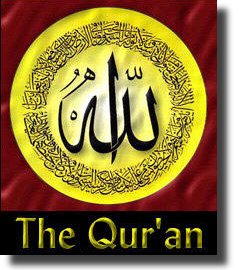Tag: Islam
Brian Edwards’ Best Reads of 2016
December 29, 2016

My name is Brian Edwards, and I’m the Crown Professor in Middle East Studies and a professor of English and comparative literature at Northwestern. I am also the founding director of the Program in Middle East and North African Studies (MENA), which partners with EPL in a monthly lecture series on the region.
My wife Kate Baldwin, also a Northwestern professor and author, and I moved here originally because of work. We were both born in New York City, but I grew up mostly in Connecticut, she in California (we met in graduate school at Yale). After more than a decade in Evanston, and raising four children ranging from a high school senior to a pre-kindergartner, we have deep ties in the community and love it here.
I’m constantly reading both for work and pleasure. These five books, which come from my reading this fall, are the ones I’m most excited to share right now. Four of them are relatively new: three of them works of fiction and one a work of social history. I also included an overlooked novel from the 1980s that I finally read last month and now cherish. And please also take a look at my own new book, After the American Century: The Ends of U.S. Culture in the Middle East, which is also available at EPL.
1) The Sympathizer by Viet Thanh Nguyen (2015)
The 2016 Pulitzer Prize in fiction went to a first novel by an American studies professor at USC. Set in Vietnam and Los Angeles during the late 1960s and 1970s, Nguyen’s novel is structured as the confession of an unnamed south Vietnamese narrator who is secretly a mole for the communist north. What makes the novel an instant classic is the narrator’s voice: wry, critical, and ruthless as he dissects himself, the Vietnamese refugee community in SoCal, and the excesses of American anti-Communism and violence in the war. The chapters on the making of a fictional Hollywood film called The Hamlet, which closely resembles Francis Ford Coppola’s Apocalypse Now, are devastating. Beyond the sheer pleasure it generates, The Sympathizer shows what the contemporary novel can do to disrupt and deconstruct America’s sense of global superiority and the follies of military occupation in the name of exporting American principles.
Read a Koran/Qur’an Day
September 10, 2010
 Heard about the Dove World Outreach Center’s plan to publicly burn a stack of Korans on September 11th? Just in time for Banned Books Week, many organizations around the world are promoting September 11th as “International Read a Koran Day”. For those wishing to participate, or who simply want to know more about his highly influential, much misunderstood text, here are some suggestions.
Heard about the Dove World Outreach Center’s plan to publicly burn a stack of Korans on September 11th? Just in time for Banned Books Week, many organizations around the world are promoting September 11th as “International Read a Koran Day”. For those wishing to participate, or who simply want to know more about his highly influential, much misunderstood text, here are some suggestions.
There are several free online editions; a great, easy to use site is the Center for Muslim-Jewish Engagement, which presents the entire text in 3 parallel English translations. Beliefnet’s collection of Qur’an quotations, indexes and commentaries is another terrific online resource.
The Evanston Public Library owns several editions, including The Qurʼan : a new translation from 2008; a parallel translation with English and Arab text; and al-Qurʼān : a contemporary translation from Princeton University. Some excellent commentaries and histories of the Qur’an:
Opening the Qur’an : introducing Islam’s holy book by Wiliam Wagner, an overview specifically for Christina and Jewish readers
The Qur’an: a biography, by Bruce Lawrence. Part of the “Books That Shook the World “series, Lawrence looks at the roles of the Prophet Muhammad; then considers early commentaries, later interpreters, echoes in other Asian religious, the the use of the Qur’an by various factions in the modern world.
For those looking for a simple accessible introduction, the “Dummies” and “Complete Idiot” series may be useful (no insult to the reader intended!).
As with any religious text, the subtleties of translation are highly relevant to interpretation. For an illuminating look at translation issues, see, “Assessing English Translations of the Qur’an,” by Khaleel Mohammed in Middle East Quarterly.
–Lesley W.
